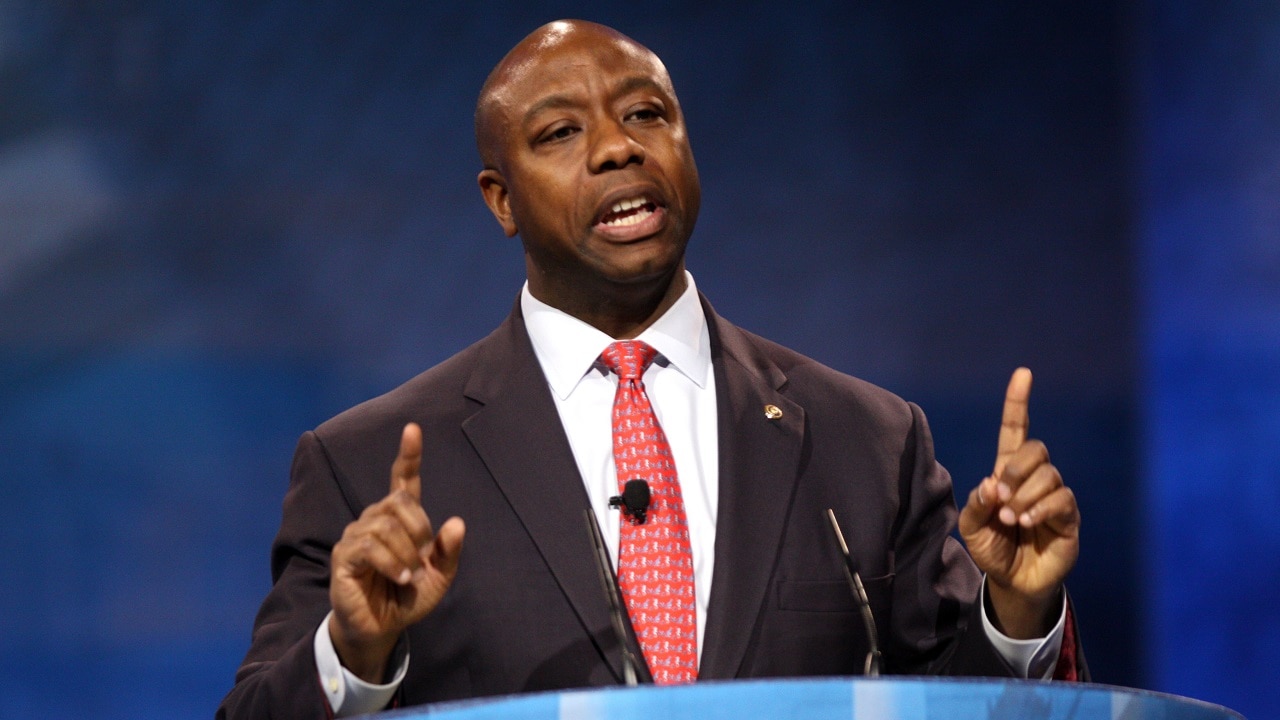In a heartfelt moment at the Iowa Faith and Freedom Coalition’s annual fall banquet in Des Moines, Republican presidential candidate and South Carolina Sen. Tim Scott shared a glimpse into his personal life and faith. Addressing attendees, he spoke about his upbringing and the impact of faith on his relationships.
When asked if there was a “special lady” in his life, Senator Scott affirmed, “Yes,” describing his girlfriend as “a lovely Christian girl.” He humorously invited the crowd to join in prayer for him. Scott’s commitment to family and stability stems from his experience of growing up in a single-parent household plagued by poverty. He emphasized the importance of his faith in guiding his path and expressed gratitude for the divine intervention that brought the right person into his life at the right time.
Scott, the only unmarried Republican presidential candidate, acknowledged his faith as a core aspect of his identity. He has consistently emphasized being a Christian above all other affiliations, stating, “I see myself first as a biblical leader and not as a Republican or conservative leader. I am first a Christian, and it is the thing I have chosen to be above all other things.”
Addressing speculation about his relationship from other campaigns, Scott decried attempts to use his personal life to cast doubt on his presidential bid. He highlighted the issue of bias and discrimination, urging a focus on substantive matters rather than attempts to label or categorize individuals.
Why We Care About Politicians’ Personal Lives
The public’s curiosity about politicians has long extended beyond their policy stances and public speeches.
Voters are increasingly drawn to understanding the private lives of politicians, especially in an age dominated by social media and 24/7 news coverage, the line between public and private life has blurred. Politicians often utilize these platforms to share glimpses of their personal experiences, making their lives more accessible and relatable to the public.
Secondly, voters seek authenticity and transparency in their elected officials. By delving into a politician’s personal history, values, and experiences, voters aim to gauge the individual’s integrity, honesty, and alignment with their own values. It’s believed that insight into a politician’s personal life can offer a more complete picture, aiding voters in making informed decisions at the polls.
Furthermore, a politician’s personal life can shed light on their empathy, resilience, and ability to relate to the challenges faced by everyday Americans. Knowing about their upbringing, family dynamics, and personal struggles can provide a glimpse into the resilience and determination that may drive their policy decisions and priorities.
However, this curiosity also raises ethical questions about privacy boundaries and the relevance of personal details in evaluating a candidate’s capabilities to govern. Critics argue that a politician’s competence and policy proposals should take precedence over their personal life, and focusing too much on personal matters can distract from substantive issues and meaningful debates.
The balance between curiosity about a politician’s personal life and the need to prioritize policy discussions remains an ongoing discourse. As the American electorate continues to engage in a dynamic political landscape, the quest for a deeper understanding of politicians—both as public figures and individuals—remains an integral aspect of the democratic process. Understanding the fine line between public interest and privacy is crucial to ensure a robust, informed electorate that shapes the nation’s political trajectory.
Faith-the Controversial Cornerstone of US politics?
Across American political life, the intersection of Christianity and governance has often been a contentious subject.
Christianity has a significant impact, with a notable presence within the Republican Party. Many Republicans draw on their Christian faith as a guiding principle, framing their policy decisions and ideologies accordingly. Issues such as abortion, traditional family values, religious freedom, and opposition to LGBTQ+ rights often align with certain Christian teachings, influencing the party’s agenda.
However, this close association between Christianity and politics raises concerns about the separation of church and state, a foundational principle in the United States. Critics argue that the intertwining of religious beliefs and political decision-making can infringe upon the rights of those with different faiths or beliefs, potentially excluding or marginalizing individuals from the political process.
In recent years, debates around issues like LGBTQ+ rights, reproductive rights, and the role of religion in public schools have intensified. The Republican Party’s firm stance, often guided by Christian doctrine, has sparked heated discussions and heightened polarization, illuminating the deep divisions within the American electorate.
Advocates for a stricter separation of church and state argue that public policies should be grounded in a diverse range of beliefs, not exclusively influenced by any one religion. They stress the importance of an inclusive approach that respects the rights and perspectives of all citizens, regardless of their faith or lack thereof.
Navigating the delicate balance between respecting religious freedoms and maintaining a secular government remains an ongoing challenge. Striking the right balance is crucial to uphold the American ideals of fairness, equality, and liberty for all, while honoring the nation’s rich diversity of beliefs and perspectives in the political arena.
Georgia Gilholy is a journalist based in the United Kingdom who has been published in Newsweek, The Times of Israel, and the Spectator. Gilholy writes about international politics, culture, and education.

